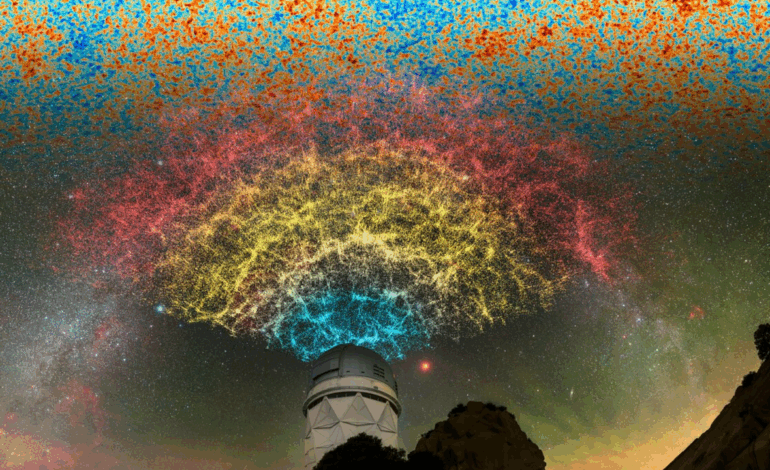Universe’s Fate Revealed: Could Collapsing in 33 Billion Years

BREAKING: Astronomers have just announced a shocking revelation: the universe could collapse in a mere 33 billion years, significantly sooner than previously thought. This new timeline emerges from tantalizing evidence indicating that dark energy, the force accelerating cosmic expansion, may be evolving.
Recent massive surveys conducted by the Dark Energy Survey (DES) and the Dark Energy Spectroscopic Instrument (DESI) have unveiled data suggesting that dark energy is not static. If these findings hold true, they could revolutionize our understanding of the cosmos and challenge the prevailing cosmological constant model.
Researchers have theorized that a complex model involving axions—hypothetical ultralight particles—may be at play. These axions could be saturating the universe, significantly influencing the current acceleration of expansion. However, this new model also introduces a second component: a negative cosmological constant, which would counteract expansion over time.
The implications are staggering. The authors of the study predict that the universe will enter a phase of deceleration within 10 billion years, leading to a “Big Crunch” scenario reminiscent of the Big Bang. As the axions lose their influence, the universe will slow its expansion, reverse direction, and begin collapsing into a hot, dense state.
“This could mean we are currently enjoying a temporary period of accelerated expansion,” the researchers stated. “However, the future will bring a dramatic reversal.”
This collapse is projected to last approximately another 10 billion years, culminating in a singularity state that would mark the end of the universe as we know it. The researchers emphasize that this is a deeply theoretical proposition, pending further scrutiny and peer review.
While these findings are groundbreaking, they also carry significant emotional weight. The potential end of the universe is not just a scientific issue; it compels humanity to reflect on our place in the cosmos and the transient nature of existence.
The implications of this research extend far beyond mere numbers. It opens avenues for new theories about dark energy and challenges our understanding of the universe’s lifecycle. As scientists continue to analyze this data, the world watches in anticipation of what these revelations might mean for our future.
For those intrigued by the mysteries of the universe, this is a developing story that promises more discoveries. As new insights emerge from ongoing studies, the scientific community and the public alike are urged to stay tuned for further updates.
In the meantime, share your thoughts on what this could mean for the future of humanity and the universe. The conversation surrounding these revelations is just beginning.






